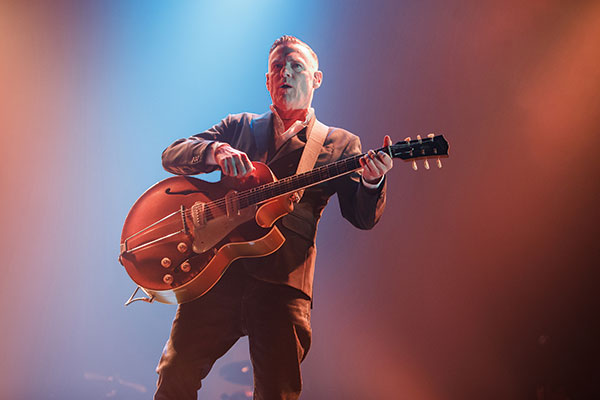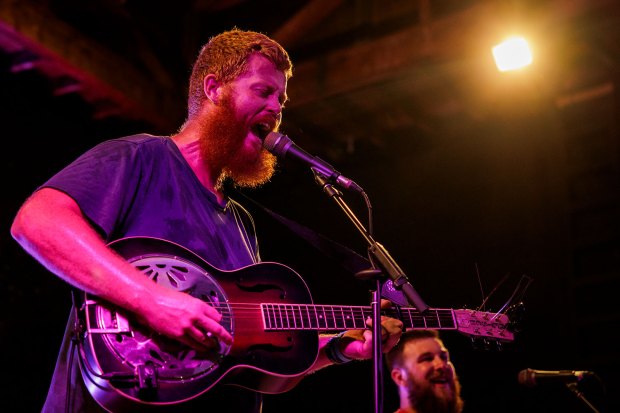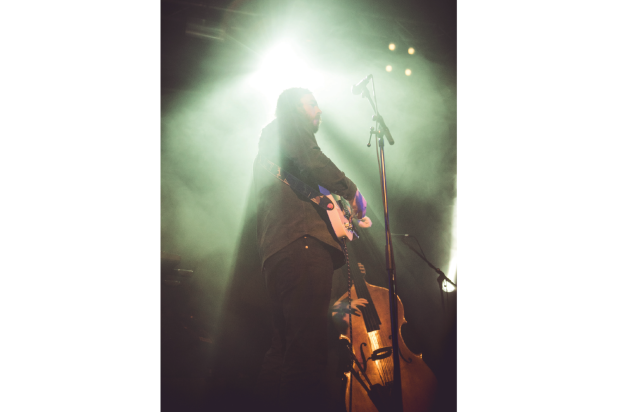On 29 June 1991, a record called ‘(Everything I Do) I Do It For You’ by Bryan Adams entered the UK charts, at No. 8. At that point, I was blissfully in love with my girlfriend, had just got a first at university and had won a scholarship to a postgraduate journalism course. By the time it departed from the charts, on 14 December — after a run that included a still-record 16 weeks at No. 1 — I had been dumped by my girlfriend, had dropped out of the journalism course, and my dad, who had been poorly when the record entered the charts, was a month away from dying.
During the course of one single’s chart run, all the certainties in my life had been overturned. All of which is a roundabout way of saying how right Noël Coward was about cheap music: think how many personal disasters and triumphs must have been soundtracked by Adams’s theme to Robin Hood: Prince of Thieves.
In 1991 it was hard to think of Adams as anything other than the blandest of the bland, a gruff emoter dealing in lowest common denominators (‘There’s no love like your love/ And no other could give more love,’ is a lyric so clumsy is still makes me cringe).
But something has happened in the meantime. It’s not that Adams got hip (the crowd at Wembley Arena veered strongly towards late middle-aged couples, though there were kids there, too: I noticed a pair of young women in front of me, a couple of teenagers to my left), more that some of his virtues have been reassessed.
These days you can go to a club night, Ultimate Power, where you can be surrounded by 1,200 young people singing along to power ballads like ‘I Do It For You’. A couple of years ago, I was surprised when a group of young music writers were horrified by my dismissal of ‘I Do It For You’. To them it was, quite clearly, a classic, a ‘Hey Jude’ of its age. And, true, time has dimmed its grotesque overfamiliarity: Adams’s performance of it at Wembley — midset, not saved for the encores — was rather restrained, highlighting the thing many of his seemingly prosaic rock songs do, namely throwing in unexpected chords that have the effect of lifting them above the mundane. And you’d be surprised how many really pretty decent songs he has: ‘Run To You’, ‘Summer of 69’ (the nearest he ever came to something that merited the Springsteen/Petty comparisons), ‘Can’t Stop This Thing We Started’, ‘When You’re Gone’, ‘Heaven’, ‘The Only Thing That Looks Good On Me Is You’. None of them are revolutionary, but all sound like the work of an undervalued songwriter and decent man.
It’s perhaps the decency that accounts for Adams’s continuing appeal. In an age where misdeeds are exposed and careers halted, there’s something delightfully relieving about simply being able to listen to the songs without worrying about whether the singer is planning to assault some women backstage afterwards. In fact, the most dangerous thing about Adams is the way he currently looks: with his close-cropped, brushed-back hair and black suit, he had the appearance of the Gestapo officer in some second world war drama.
Adams never quite ascended to the top rank of rock stars, perhaps because decency has never been a highly prized virtue in rock. But when he noted that this was his 29th show at Wembley Arena, it was awfully hard to begrudge him that success.
Got something to add? Join the discussion and comment below.
Get 10 issues for just $10
Subscribe to The Spectator Australia today for the next 10 magazine issues, plus full online access, for just $10.
You might disagree with half of it, but you’ll enjoy reading all of it. Try your first month for free, then just $2 a week for the remainder of your first year.














Comments
Don't miss out
Join the conversation with other Spectator Australia readers. Subscribe to leave a comment.
SUBSCRIBEAlready a subscriber? Log in